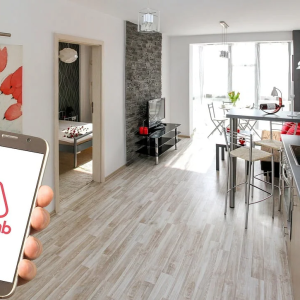The high stakes of misplaced trust
In the UAE’s fast‑paced startup ecosystem, talent and networks are everything. But trusting the wrong people—co‑founders, advisors, investors or vendors—can spell disaster. Recent data shows over 70% of UAE startups fail within three years . And while typical causes include cash‑flow shortages or regulatory missteps, misplaced trust is often the hidden pivot point.
Whether it’s sharing equity with a partner who drags their feet or outsourcing critical functions to an unreliable agency, the wrong relationship can erode your team, drain finances, and derail momentum—all while damaging your hard‑earned credibility.
1. Team misalignment: the silent killer
Startups succeed or fail on the strength of their teams. Picking partners based on chemistry or convenience—without vetting cultural fit, ethics, or competence—sets you up for internal conflict. A study on global startup failures found “the right people are not on board” as a core reason .

In the UAE context, founder teams often assemble quickly to capitalize on momentum. But a fractured team with diverging values or poor collaboration will struggle under regional market pressures and cultural complexity.
Tip: Solid due diligence on partners—shared values, clear expectations, reference checks—helps build a unified team ready to tackle UAE challenges.


2. Advisors and investors: friend or saboteur?
Guidance is vital in the UAE, where regulations shift, and cultural norms shape consumer behavior. But not every advisor or investor aligns with your mission. Some may push for short‑term exit strategies or market plays that suit their interests, not yours.
That mismatch can distort your product roadmap, undercut your brand, or even trigger legal and financial exposure. As one industry leader warned, the ecosystem is riddled with ill‑advice: “everyone is giving advice, perhaps ill advice, including business and financial—to startup founders”.
Tip: Vet the intentions behind mentorship or investment. Ask about their past startups, who benefits if things go well, and whether they’ve stayed connected through the climb and the fall.
3. Vendor partnerships: not always a safe bet
Many startups rely on agencies—legal, marketing, accounting—to launch quickly. But trusting the wrong vendor can lead to botched campaigns, cost overruns, compliance violations and reputational damage. In one regional survey, mismanaged financial processes ranked among top failure causes .
Tip: Require service-level agreements, check references in the local market, and enforce accountability through milestones, audits, and transparent reporting.

4. The cultural ingredient nobody talks about
The UAE is a tapestry of cultures—Emirati, South Asian, Arab, expat. Trust in this landscape is built differently. A Western-style handshake deal may not hold here. Overconfidence—when you assume someone is reliable—is especially risky. For instance, Visa’s study shows UAE consumers often trust appealing messages, even from scammers. The same overconfidence can affect startups.
Tip: Treat every deal with a blend of openness and caution. Validate relationships through clear contracts and local knowledge—even if someone seems reliable on surface level.
5. Trusting success blindly: a cultural blind spot
In the UAE, startup success stories often glorify rapid wins. But failure is still stigmatized. This norm makes founders less likely to acknowledge when a partnership is going south. They hide issues due to fear of admitting failure, which further compounds problems.
Tip: Normalize transparent conversations, even negative ones. Bring in a neutral mediator or adviser for tricky partnership issues. A trusted third party can help close the loop or restructure relationships before trust fatally fractures.
6. Real-world cautionary tales
- Fortress Prime: Once a reputed clearing‑house in Dubai, the company collapsed amid non‑payment and fraud allegations. A key lesson? If a partner misrepresents capabilities, it’s often too late to repair once money starts flowing.
- Conservus International: Ran with bold investor backing and big hotel partnerships—but the founder didn’t build a reliable team, and the offering collapsed. Investors lost faith in both people and product .
Both cases show that no matter how strong the appearance, poor trust networks led to fatal breakdowns.

7. How to build trust safely
| Principle | Practice |
|---|---|
| Due diligence | Background checks, reference interviews, cultural vetting |
| Incremental trust | Start small: pilot projects, phased equity vesting |
| Legal clarity | Transparent contracts, clearly defined roles, protocols for exit events |
| Cultural mentorship | Partner with local mentors—government-affiliated agencies or incubators |
| Transparent audits | Regular check-ins, third-party reviews, milestone-based payments |
8. The upside: resilient trust breeds rocket‑fuel growth
When trust is built right, it accelerates everything. Aligned founding teams cut execution time. Values-based investors hold hands through lean times. Vendors deliver high-quality work on time. Cultural and governance alignment builds credibility with regulators and consumers. Together, these factors fuel the top 5% of UAE startups that actually scale.
Conclusion
Misplaced trust is one of the most lethal—and often invisible—risks for UAE startups. But by embedding due diligence, cultural sensitivity, clear processes, and incremental partnerships, founders can turn trust into fuel. The path forward isn’t about avoiding relationships—it’s about building the right ones, deliberately and wisely. In doing so, your startup can avoid the iceberg and ride the wave of UAE’s entrepreneurial boom—with trust as your catalytic advantage.
Do follow UAE Stories on Instagram
Dubai Fundraising: The Surprising Thrill Behind Those Investor Meetings













